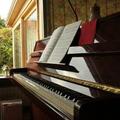Atividade física
Physische Aktivität
Physical activity
Activité physique
體力活動
Movimentar o corpo é muito importante para manter a saúde, e todo mundo tem uma atividade favorita.
Die Bewegung des Körpers ist sehr wichtig für die Erhaltung der Gesundheit, und jeder hat eine Lieblingsbeschäftigung.
Moving the body is very important to maintain health, and everyone has a favorite activity.
体を動かすことは健康を維持するために非常に重要であり、誰もが好きな活動をしています。
活動身體對保持健康非常重要,每個人都有自己喜歡的活動。
Tem gente que pratica esporte, outros vão para a academia ou fazem ginástica em casa junto com um programa de televisão ou DVD, e há aqueles que têm seus equipamentos em casa, como uma bicicleta biométrica ou uma esteira ergométrica e assistem ao noticiário enquanto se exercitam.
Es gibt Menschen, die Sport treiben, andere gehen zu Hause ins Fitnessstudio oder turnen zu einem Fernsehprogramm oder einer DVD, und es gibt diejenigen, die ihre Geräte zu Hause haben, wie ein biometrisches Fahrrad oder ein Laufband, und während des Trainings Nachrichten schauen . .
There are people who play sports, others go to the gym or work out at home together with a television or DVD program, and there are those who have their equipment at home, such as a biometric bicycle or treadmill, and watch the news while exercising .
Il y a des gens qui font du sport, d'autres vont à la gym ou travaillent à la maison avec un programme télévisé ou DVD, et il y a ceux qui ont leur équipement à la maison, comme un vélo biométrique ou un tapis roulant, et regardent les informations pendant l'exercice .
有些人從事體育運動,有些人則去健身房或在家做體操,同時觀看電視節目或 DVD,還有一些人在家中擁有自己的設備,例如生物識別自行車或測力跑步機,並觀看新聞鍛煉時。
Tem gente que gosta de fazer exercício de manhã cedo antes de ir trabalhar, outros preferem se exercitar no final da tarde ou de noite, após o trabalho.
Manche Menschen trainieren gerne frühmorgens vor der Arbeit, andere lieber am späten Nachmittag oder abends nach der Arbeit.
There are people who like to exercise early in the morning before going to work, others prefer to exercise in the late afternoon or evening after work.
有些人喜歡早上上班前鍛煉,有些人喜歡在下午晚些時候或晚上下班後鍛煉。
Aqui na Dinamarca também é comum ver gente que faz uma pausa no meio do expediente para fazer seus exercícios.
Hier in Dänemark ist es auch üblich, dass Menschen mitten in der Arbeit eine Pause machen, um ihre Übungen zu machen.
Here in Denmark it is also common to see people taking a break in the middle of the day to do their exercises.
Ici au Danemark, il est également courant de voir des gens faire une pause en milieu de journée pour faire leurs exercices.
在丹麥這裡也很常見,人們在一天中午休息一下來鍛煉身體。
Depois eles tomam uma ducha e voltam para trabalhar.
Dann duschen sie und gehen wieder an die Arbeit.
Then they take a shower and go back to work.
然後他們洗個澡就回去工作了。
Ah, não posso me esquecer daqueles que vão para o trabalho de bicicleta, patins ou correndo, e esse é o exercício diário deles.
Oh, ich kann diejenigen nicht vergessen, die mit dem Fahrrad, Inline-Skating oder Laufen zur Arbeit fahren, und das ist ihre tägliche Übung.
Oh, I can not forget those who go to work by bike, skates or running, and that is their daily exercise.
Oh, je ne peux pas oublier ceux qui vont travailler à vélo, en skate ou en courant, et c'est leur exercice quotidien.
啊,我忘不了那些騎自行車、溜旱冰、跑步上班的人,這就是他們每天的運動。
Já eu faço parte dum outro grupo de pessoas... os que gostam de ficar sentados na frente do computador.
Ich hingegen gehöre zu einer anderen Gruppe von Menschen ... denen, die gerne vor dem Computer sitzen.
Already I am part of another group of people ... those who like to be seated in front of the computer.
Je fais déjà partie d'un autre groupe de personnes ... celles qui aiment s'asseoir devant l'ordinateur.
我屬於另一群人……那些喜歡坐在電腦前的人。
Admiro aqueles que conseguem fazer exercício ou esporte todos os dias.
Ich bewundere diejenigen, die es schaffen, sich jeden Tag zu bewegen oder Sport zu treiben.
I admire those who get exercise or sport every day.
我欽佩那些每天都能鍛煉或運動的人。
E honestamente, não sei como eles conseguem superar a preguiça e a inércia.
Und ehrlich gesagt weiß ich nicht, wie sie es schaffen, Faulheit und Trägheit zu überwinden.
And honestly, I do not know how they manage to overcome laziness and inertia.
Se eu nunca faço exercício?
Wenn ich nie trainiere?
If I never exercise?
Si je ne fais jamais d'exercice?
如果我從不運動?
Sim, de vez em quando eu corro.
Ja, hin und wieder laufe ich.
Yes, every once in a while I run.
Oui, je cours de temps en temps.
是的,我時常跑步。
Corro atrás do meu ônibus ou do trem!
Ich laufe meinem Bus oder Zug hinterher!
I run after my bus or the train!
バスや電車を追いかけます!
Se vejo que o meu ônibus ou trem já está vindo, eu corro desesperadamente para alcançá-lo.
Wenn ich sehe, dass mein Bus oder Zug schon unterwegs ist, renne ich verzweifelt hinterher.
If I see that my bus or train is already coming, I rush desperately to reach it.
バスや電車がすでに来ているのを見ると、必死に走ってそこにたどり着きます。
Depois da corrida, entro no ônibus toda ofegante, descabelada e com o rosto vermelho.
Nach dem Rennen steige ich hechelnd, zerzaust und rot im Gesicht in den Bus.
After the race, I get on the bus all panting, disheveled and red-faced.
Todos olham para mim.
Alle sehen mich an.
Everyone looks at me.
みんな私を見ます。
Não importa.
Das spielt keine Rolle.
Does not matter.
Fico contente quando consigo alcançar o ônibus, pois com a corrida fiz um pouco de exercício e também não precisarei ficar esperando um tempão pelo próximo ônibus.
Ich bin froh, wenn ich es schaffe, den Bus zu erwischen, denn durch das Laufen habe ich ein wenig Bewegung bekommen und muss auch nicht lange auf den nächsten Bus warten.
I'm happy when I can reach the bus, because with the race I did a little exercise and I also do not have to wait for the next bus for a long time.
レースでは少し運動をし、次のバスを待つ必要もないので、バスに着くことができて嬉しいです。

